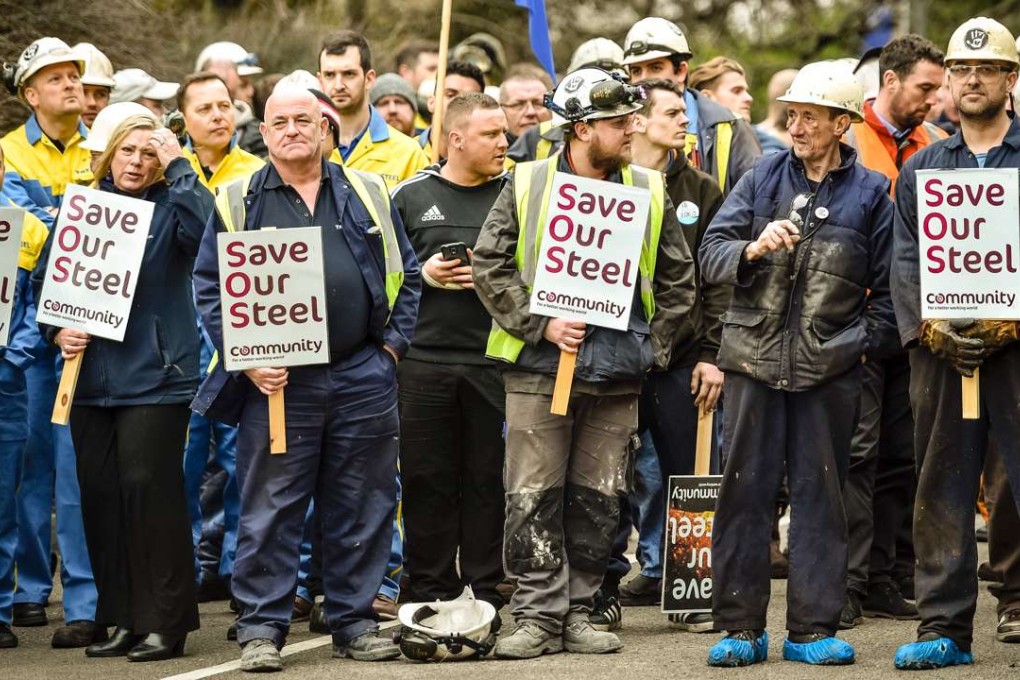Sino-UK ‘golden age’ is losing its shine in British people’s eyes
Tim Collard says while government ties remain strong after Xi Jinping’s high-profile visit, UK public opinion is fast souring out of concern for the impact on local industries

At the time of President Xi Jinping’s (習近平) state visit to the UK last October, the preparatory messages coming from China were extremely positive. There was talk, endorsed at the highest levels, of a “golden age”, even a “golden decade” of Sino-British partnership. The British side was keen to lock in these promises, especially as there had been uncomfortable patches in the bilateral relationship due to Chinese suspicions of British interference in Hong Kong. And so both sides worked flat out to ensure the success of the visit, which passed off in a duly spectacular fashion.
Stronger ties between China and Britain will foster growth
The longer-term effects, however, are not so clear. The red-carpet deference shown to Xi was a hard sell to observers in Britain. Added to that, the current relative economic power of Britain and China gives rise to suspicion that Britain might be allowing itself to be handed the short end of the deal.

The buying of Britain: Chinese biotech, insurance and tourism firms line up to make British acquisitions
This has not led directly to resentment against China; the British are realistic and can see how the political and economic power relations stack up. It has, however, tended to weaken confidence in the British government’s ability to manage this relationship. Confidence in David Cameron’s government is nowhere near as strong as it might look from outside. It is generally recognised in the UK that Cameron’s electoral victory in May 2015 owed more to a weak opposition and economic uncertainty than to any great enthusiasm for his leadership. Moreover, it is widely felt that the government may be serving the interests of international finance and the economically powerful rather than those of ordinary people. Thus, a happy relationship between China and the British government does not equate to a happy relationship between China and British public opinion.
There is also considerable worry about the effect of the Sino-British deal on Britain’s industry. Even at the time of Xi’s visit, Tata Steel, the Indian group which owns a large part of Britain’s steel industry, was announcing redundancies at some of its UK steel plants. Rightly or wrongly, this has been blamed on cheap Chinese steel imports. Tata has since said it is closing the steel plant at Port Talbot in Wales, which more or less spells the end for the British steel industry.

Britain urges China’s help in tackling steel crisis as Tata puts up plants for sale
But surely, one might ask, there are international agreements preventing such price undercutting, or “dumping”? Britain’s EU partners are blaming the UK for blocking the sharpening of these regulations, accusing Britain of trying to please China and steal a march on its European competitors. And the last thing Britain needs at the moment is further embroilment with the remainder of the European Union.
